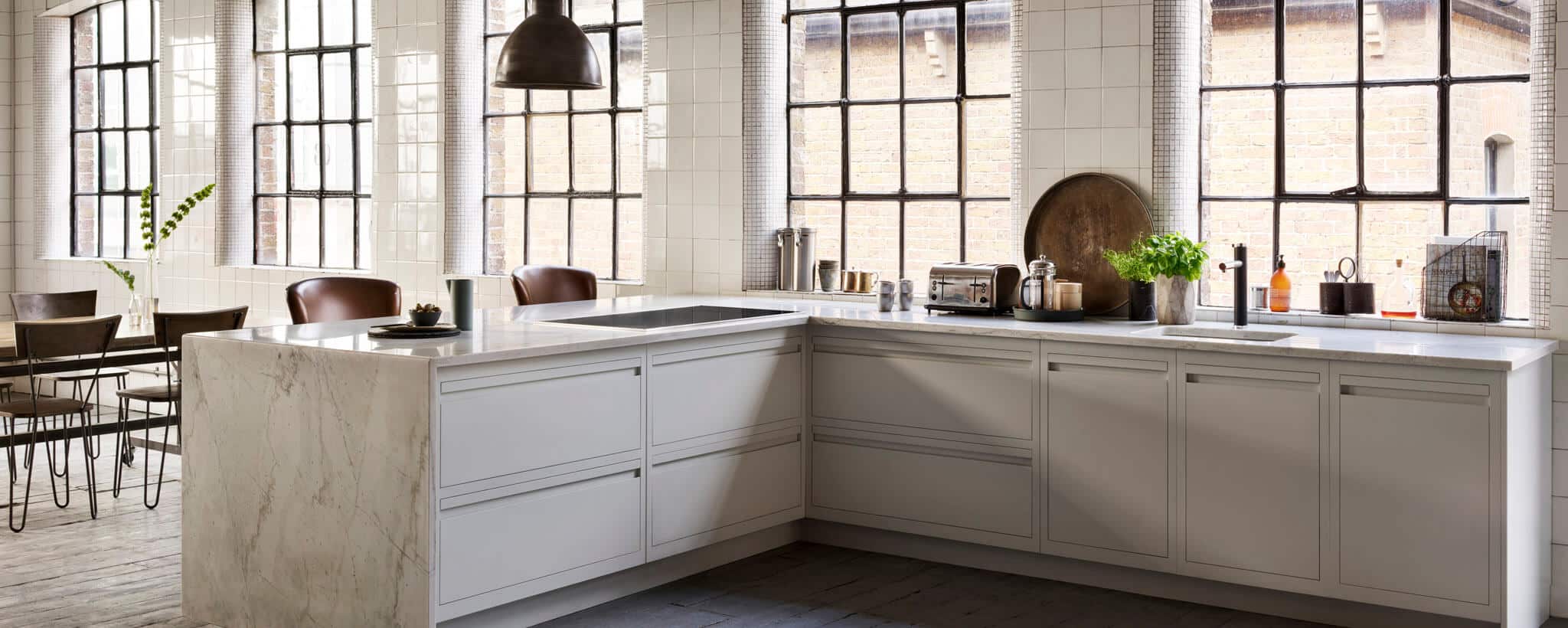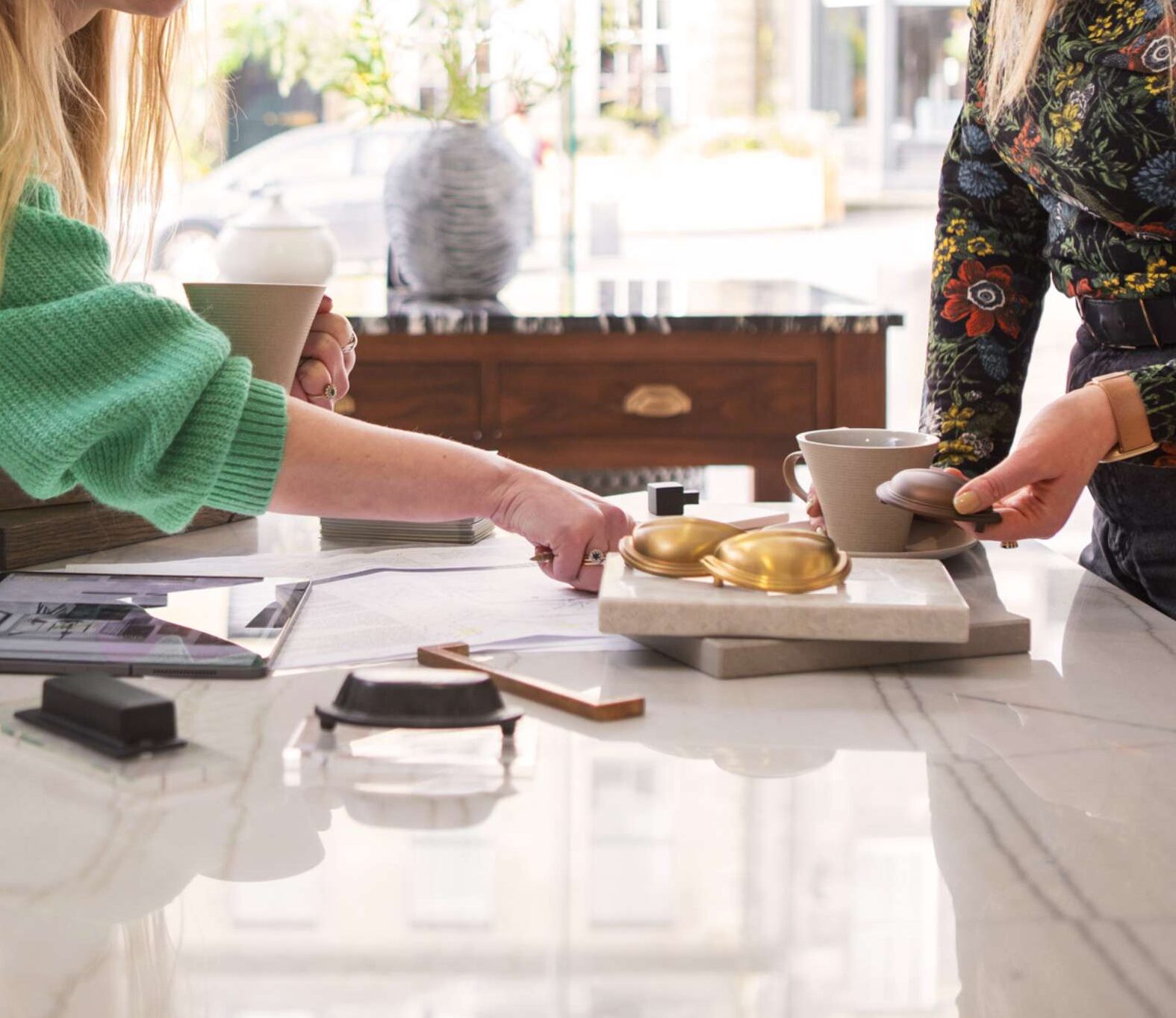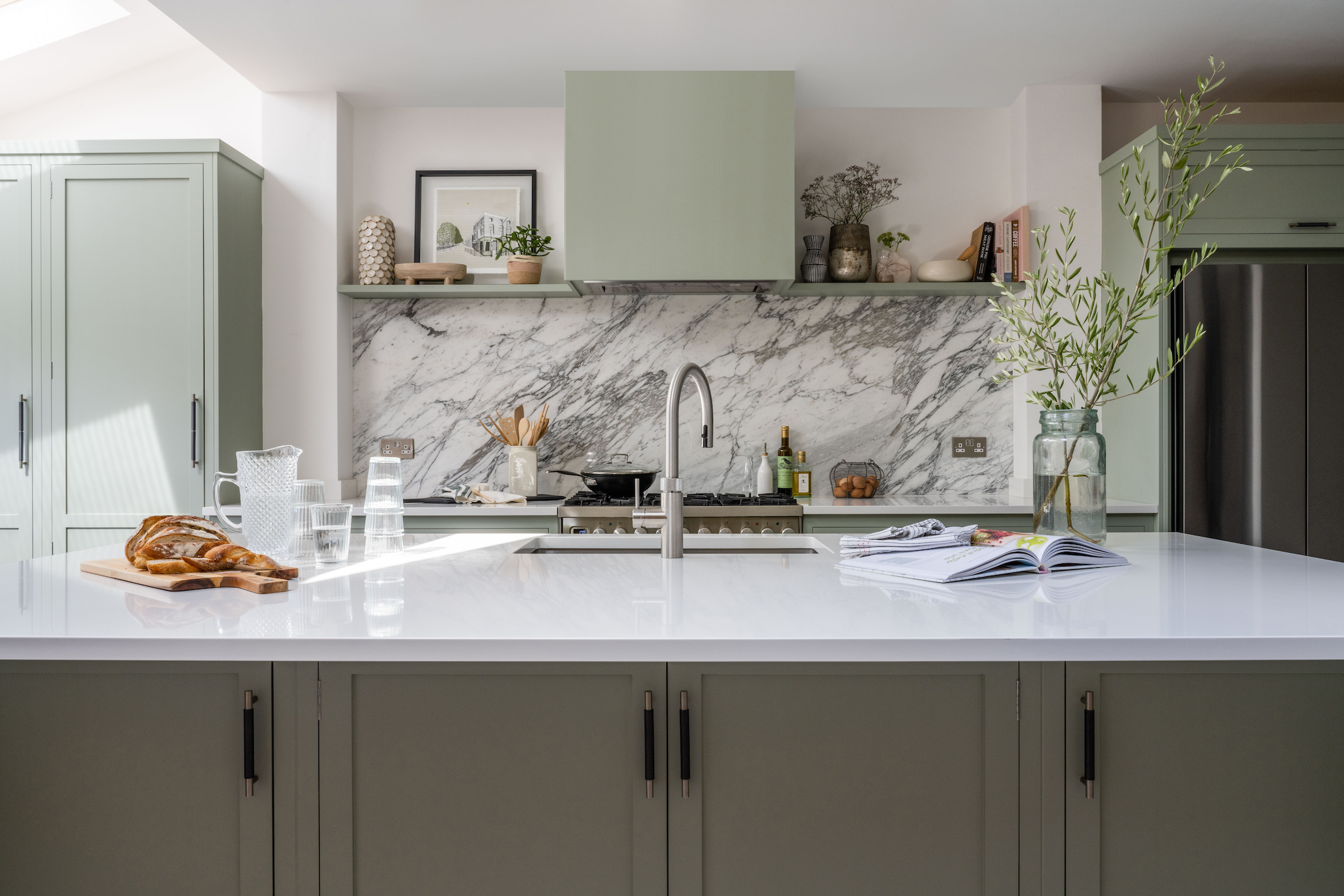
When coming to design or refurbish a kitchen, the question of worktops is always a big one. These are particularly important — beyond the aesthetic element which can influence every other choice about the look of your new space, countertops are also one of the most practical features of a kitchen, so choosing the right material is essential.
Marble is a longstanding favourite among kitchen designers due to its luxurious appeal and appearance. However, there are also some great alternatives on the market such as granite, quartz, soapstone or laminates. We’re still huge fans of marble, so if you’re debating between the different options available to you, here are some of the pros and cons of marble kitchen countertops.
Pros of marble countertops
1. Marble looks great
Probably the main reason why marble is such a popular choice is due to its aesthetics. A marble work surface is usually white or light-grey, but can also come in a variety of different colours depending on the ambience you’re looking for, from striking black and dark-grey to more uplifting tones such as blue, pink and yellow. There are very few countertop materials that evoke the same luxurious feeling of smooth marble, so if the looks are the most important thing to you, it is truly unmatched.
2. Marble is cost effective and long lasting
While marble is considered a luxury material, it isn’t always more expensive than its counterparts. Some marble types, like Carrara, are far less pricey than others. Costs can fluctuate based on the location of the quarry from which the marble was sourced, the demand for it, how available it is, and how thick and large your required slab is. A cheaper piece would usually set you back less than a man-made alternative. What’s more, marble is extremely durable, which means it would save you money in the long run.
3. Marble is heat resistant
While the climate in the UK is definitely not a warm one, we are prone to having the occasional heatwave, more so in recent years. Marble is extremely heat resistant, meaning it will stay cool even if placed in high temperatures. Regardless of weather, this is exceptionally useful for bakers and avid cooks. The smooth, cool surface is ideal for rolling dough with minimal sticking and distortion. As a side note, though, you should still be cautious — don’t just place a hot pan directly on marble because it may cause discolouration.
4. Marble is more sustainable than other options
With sustainability at the forefront of our minds, more and more people are becoming interested in the materials they choose for their home because of the impact they have on the planet. While marble is a natural resource, and therefore non-renewable and demands an energy-heavy extraction process, it is still a good option from a sustainability standpoint compared with a lot of other worktop alternatives. It is recyclable and extremely long lasting, which are two incredibly important factors when looking for an eco-friendly material. It’s a great choice for anyone who’s drawn towards more natural elements in their home.
Cons of marble countertops
1. Marble is easily stained
Although it is long-wearing in the broad sense, marble is still prone to some impurities after regular use. In other words, it can stain very quickly. When purchasing marble, it’s important to understand that, while it’s going to last for years and years, it will not remain in the same condition as the fresh and pristine slab you pick. Consider that when making your ultimate choice — white marble will stain less than darker shades, for example. If you’re a real perfectionist and wouldn’t be able to stand any discolouration on your surfaces, it’s probably best if you gave marble a miss.
2. Marble can be high maintenance
Marble is extremely porous, meaning you will need to allocate time to give your marble surface the attention it requires, if you want to keep it looking its best. Before purchasing it, make sure your marble is sealed — this will help with its absorbent qualities. Sadly, though, you’d need to repeat the process every once in a while to ensure it’s protected, more likely every six months or so. The porous nature of marble can lead to staining, which means cleaning it can also be harder; we recommend combining a few drops of ammonia with half a cup of hydrogen peroxide, dipping a cloth into it and wiping the surface with it to combat any marks.
3. Marble can scratch quickly
As you can probably tell by now, the cons of marble are mainly its nature which is intrinsically high maintenance. Another factor that may deter you from opting for marble is how easily scratchable it is. The material is softer than most stones, so metal can leave marks on it. Considering the kitchen is a host for many acidic and metallic items, realistically, your marble worktops are going to get scratched. Although this won’t make them any less durable it might harm the aesthetic. If you have a busy, messy household that is prone to scuffs and spillages then marble might not be for you.
4. Alternatives have come a long way
We are still huge fans of marble and believe there’s not much that can compare with its natural beauty and luxurious feel. However, the alternatives to marble — be it man-made quartz or durable stones like granite — have come a long way in the past few years and can create a similar sensation and atmosphere in your home without the time consuming maintenance. Another option is to consider using marble in a dedicated zone such as your splashback, which may be more manageable day to day. If any of the disadvantages of marble bother you, there are plenty of great options to choose from that would not only be practical, but also look great.
If you’re considering re-decorating your kitchen, contact us to get our expert opinion on which materials would suit your space and needs best.





